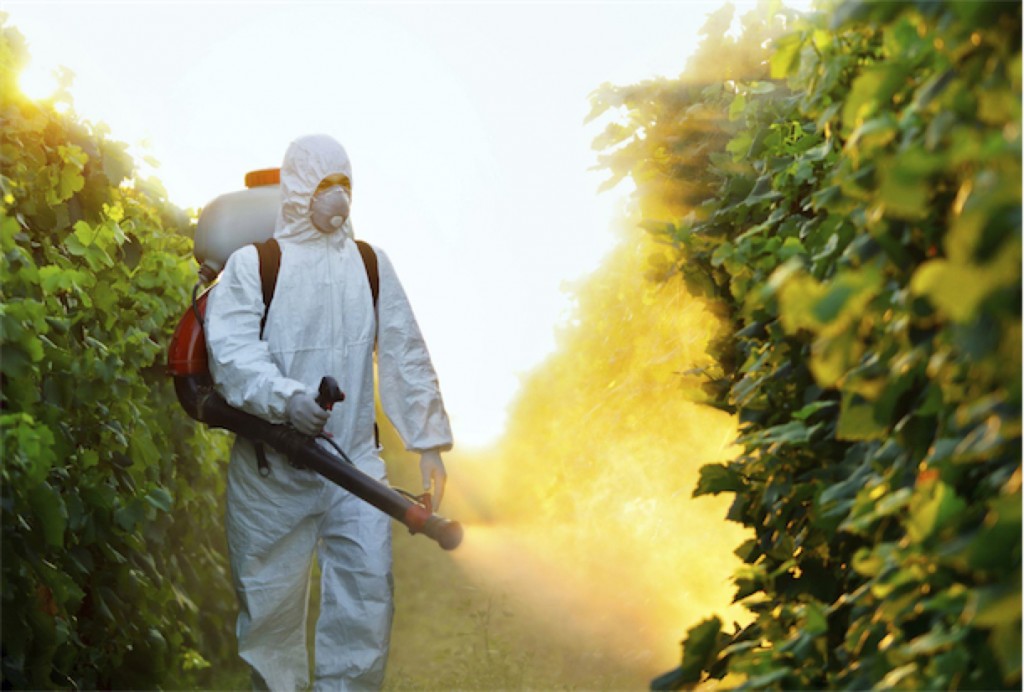21st Century Wire says…
With the Brexiteers marching on in their quest to leave the European Union, it is well worth remembering that the EU is not all bad.
While some have argued that the myriad of regulations bestowed upon countries by the EU are a bad thing, some of them are genuinely protecting the general public from toxic dangers that are otherwise allowed to flow freely across the Atlantic Ocean in the US.
While there are undoubtedly lobbying efforts in the EU to get laws altered in the favour of special interest groups, it appears to be much more challenging of a task than in the US. This story shows how ‘significant public mobilization’ can, in fact, bring about political change within the EU; something that the Brexit crowd would argue is not at all possible.
Leading European countries have decided not to extend the license for glyphosate, a herbicide used in Monsanto’s top selling weedkiller. The EU is worried about growing public concerns it could cause cancer.
The EU had offered a 12 to 18-month extension of the license to give more time for further scientific study by the European Chemicals Agency (ECHA). Before that, a proposal to renew the glyphosate license for 15 years had failed at two meetings.
Twenty member states are reported to have voted for the license renewal, with Germany, France, Italy, Greece, Austria, Portugal and Luxembourg abstaining from the vote with Malta voting against.
German Green Party MEP Martin Häusling said that by choosing to abstain the countries are skirting their own responsibilities, saying:
“It would have been right to prohibit glyphosate immediately,”
After Brussels failed to extend permission to use glyphosate, Monsanto’s top product is likely to lose its license, if there’s no decision reached by the end of June. As the June 30 deadline approaches, the deadlock could lead to an EU-wide recall by Monsanto.
In May, officials in Brussels told the Guardian that if no agreement is reached, the EU will have to start recalling Monsanto’s best-selling weed killers Roundup, Dow and Syngenta.
“Our position is clear. If we can reach a qualified majority on a text we will go ahead. Otherwise, we have to leave the authorization to expire and on 30 June member states will need to start withdrawing products containing glyphosate from the market,” the official said.
The EU decision was praised by food safety spokesperson Bart Staes, who represents the Green group in the European Parliament. Staes says glyphosate is a carcinogen and an endocrine disruptor that has a “devastating impact on biodiversity”
He told the Guardian:
“Thankfully, the significant public mobilization and political opposition to re-approving glyphosate has been taken seriously by key EU governments, who have forced the EU commission to back down,”
Glyphosate is one of the world’s most widely-used agricultural herbicides, and a key ingredient of Monsanto’s Roundup. A ban on the chemical has long been demanded by environmentalists due to health concerns, including its alleged link to cancer.
EU and UN scientists, such as the European Food Safety Authority (EFSA), do not share this opinion, although last year the World Health Organization’s International Agency for Research on Cancer (IARC) named glyphosate as“probably carcinogenic to humans.”
This article originally appeared on RT
Get 10% off a 21WIRE TV membership package today using promo code: STU21WIRETV
MORE ON MONSANTO’S GENETIC TAKEOVER: 21st Century Wire Monsanto Files
















